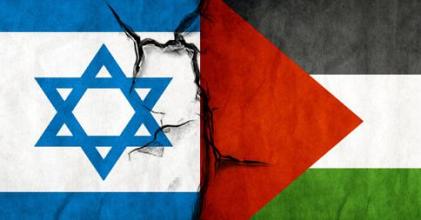(单词翻译:单击)
JOHN YANG: But, first: We look at the Israeli-Palestinian conflict through the lens of Canadian-Israeli Corey Gil-Shuster. He runs The Ask Project.
Gil-Shuster solicits questions from the Web and then hits the streets of Israel and the West Bank to ask serious and at times provocative questions. He posts the answers, unedited, on YouTube.
"PBS NewsHour" contributor Justin Kenny recently followed Gil-Shuster and produced this report.
Corey Gil-Shuster, The Ask Project: If you were driving on the highway and there was a Palestinian on the side of the highway that seemed to need help, would you stop and help?
CHEN SHIRAK, Israeli from Tel Aviv: If I'm by myself in the car, I won't stop to anyone. It doesn't matter if it's a man, a woman, in the middle of the road. If I am with someone, like my husband, and we see something, maybe we will stop.
COREY GIL-SHUSTER: My name is Corey Gil-Shuster. I run The Ask an Israeli, Ask a Palestinian Project.
If you were driving on the highway and you saw an Israeli on the side of the road that needed help, would you stop?
SAMI HABASH, Palestinian from Ramallah: Why not? Some day, he will help me. But if I saw — if I see that he is shooting, I will shoot back.
COREY GIL-SHUSTER: The project is about finding out what Israelis and Palestinians really believe and think about the conflict.
People from all around the world send me questions through e-mail. I choose the questions, and then I go out to the streets of Israel and Palestine to ask random Israelis and Palestinians to answer the questions themselves. I don't edit any content out of it.
DURA, Palestinian: Most, the majority, they want two states, an Israeli state and a Palestinian state.
RISHON LEZION, Israeli: They are very primitive. And they cannot build a country like we did.

WOMAN (through translator): For sure, the Israelis will be destroyed because Palestine is not their right.
COREY GIL-SHUSTER: Destroyed as in killed?
WOMAN (through translator): They should be killed, yes.
COREY GIL-SHUSTER: What are you willing to compromise for peace?
DROR, Israeli: Everything. My pants.
COREY GIL-SHUSTER: The question is, don't you think Israel is committing suicide by holding onto the West Bank?
NOGA TARNOPOLSKY, Israeli from Jerusalem: I think that's a really bad question.
COREY GIL-SHUSTER: OK, why?
NOGA TARNOPOLSKY: Because it's a leading question.
COREY GIL-SHUSTER: A lot of the questions I get are what I call gotcha questions. They're a little bit over the top, or exaggerated, or have a very overly simplistic way of looking at the conflict.
And I ask them exactly that way, or try to as much as possible, because I think it's interesting for Israelis or Palestinians to hear what people from outside think. And I want them to answer in an honest way.
NOGA TARNOPOLSKY: The answer is sometimes I do and sometimes I don't.
COREY GIL-SHUSTER: OK, what way — OK, so, give me an example. Why do you think yes and why do you think no?
NOGA TARNOPOLSKY: I think the investment that Israel is making in the territories is unjustified. I think that the emphasis on the West Bank in the Israeli political arena is absolutely outsized.
And when I say no, I say no because I think that other things are happening in the world. I think Israel has many problems. I don't think Israel is committing suicide.
COREY GIL-SHUSTER: I'm often accused of asking these leading questions purposely, as if it's my politics or if that's where I want the agenda of the videos to go, and it really isn't. It really is — I'm trying to speak in the voice of the person asking.
We are on our way now to Qalandiya checkpoint into the West Bank. And from there, we are going to head out to Nablus. This is the Qalandiya checkpoint. It's a major checkpoint, actually much more for Palestinians coming into Israel who have permits or Jerusalem — Palestinian Jerusalemites who work in the West Bank, so they go back and forth.
Nablus is actually my favorite — I think this is my favorite city in the West Bank. It kind of has everything. It has poor, rich, middle-class. A variety of different groups live there. And people love to shop. Well, that's true all over the West Bank. And it's just really lively all the time.
The law is that Jewish Israelis are not allowed legally to be in certain areas of the West Bank. Technically, it's not legal, what I'm doing. My family is really not supportive of me going to the West Bank. They really believe I'm going to be killed.
MANAR, Translator: My name is Manar. I'm a translator. I'm 30 years old, and I'm from Ramallah.
Some people find it, I won't say offensive, but they don't like that he lives in Tel Aviv. We don't say that he is Israeli. And it's better, because people would be more comfortable that way.
COREY GIL-SHUSTER: Do you think this project will have much of an impact?
MANAR: I hope so. I really hope so, because it's about bringing people closer together.
COREY GIL-SHUSTER: I do this because I think it's so important that, if you want to solve a conflict, you need to problem-solve. And if you want to problem-solve, you need to know what you're dealing with.
If you don't know what you're dealing with, then no solution is ever going to help.


